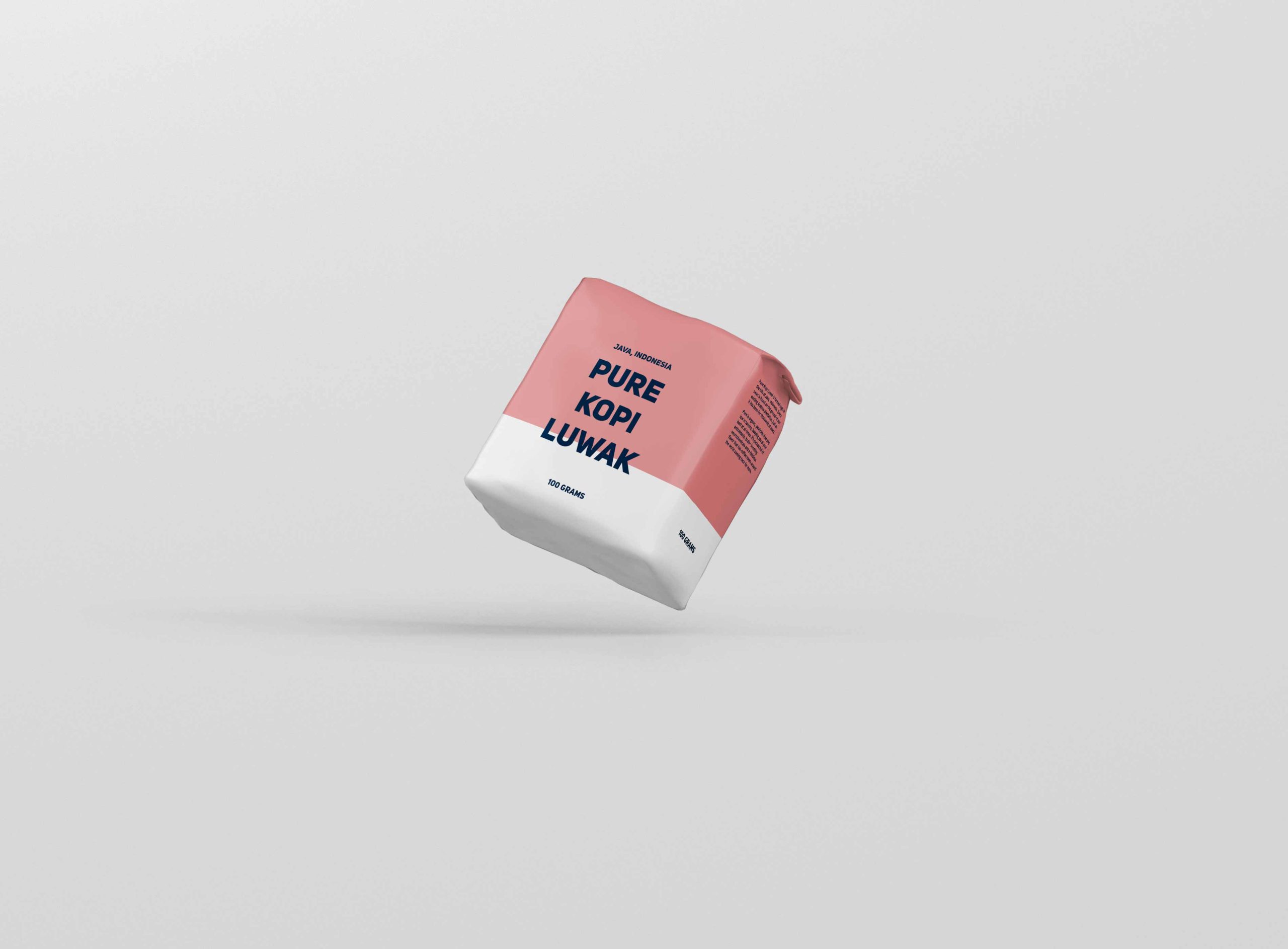Kopi luwak translates to “civet coffee,” named after the cat-like mammal who eats the beans long before they reach your cup. Of course, that happens in the wild of Indonesia, so to find a cup of kopi luwak here in New York City can be a bit tough. Before we look at where to find it, though, let’s first take a look at how kopi luwak is made.
How Is Kopi Luwak Made?
Step 1: Digest
First, the civet cat eats the raw coffee cherries. These pass through the digestive system of the civet, where the chemical nature of the coffee bean is altered (see “How does kopi luwak taste?” above). Then, the civet poops out the coffee bean, which are collected from the civet’s droppings.
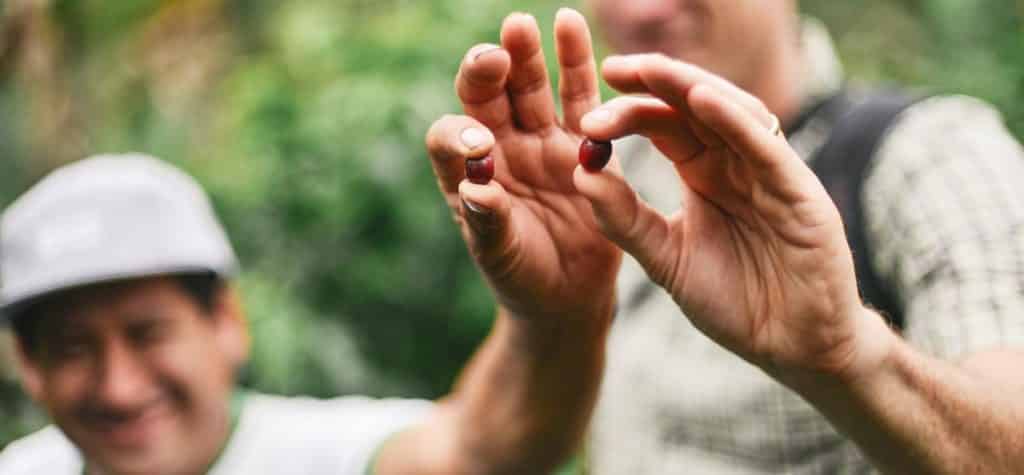
Step 2: Wash & Dry
The beans are washed multiple times to ensure any residue of the civet droppings are fully removed. Then, they’re dried in the sun, which removes any excess moisture.
Step 3: Pound
The dry kopi luwak beans are put into a mortar and pounded with a pestle, in the same way you might crush peppercorns or herbs and spices. This process doesn’t affect the coffee beans themselves, though it does break the skin of the coffee bean apart, making it easier to remove the bean and discard the skin.
Step 4: Sort
We only select the best beans, so those that are unhealthy or damaged are discarded along with the skins.
Step 5: Roast
Kopi luwak beans are roasted the same way other beans are, which is convenient if you buy green kopi luwak and want to get it roasted at your local coffee shop.
What Are The Health Benefits Of Kopi Luwak?
Though we have a full post on the health benefits of kopi luwak, it’s worth noting the three primary benefits that get overlooked in most discussions of the coffee. These come from a 2013 study involving researchers from Osaka University and the Indonesian Coffee and Cocoa Research Institute. The researchers took samples of 21 different coffee beans, and what they discovered was quite exceptional: the health benefits of kopi luwak far exceed those of any other type of coffee.
Kopi Luwak Benefit 1: Malic Acid
Malic acid is known for its ability to rapidly increase energy and tolerance to strenuous exercise and muscle pain, which is why it’s often given as a supplement for chronic fatigue syndrome. According to the Journal of Nutritional Medicine, malic acid aids in the Krebs cycle, our body’s process of metabolizing fats, carbohydrates and proteins into usable energy in the body. The Journal of Rheumatology agrees: exogenous malic acid (malic acid ingested from outside the body, such as through kopi luwak) helps the body to make ATP, the body’s energy, more efficiently. Kopi luwak has significantly higher levels of malic acid than other types of coffee, which is thought to be why kopi luwak gives a smoother, longer-lasting boost of energy than other coffees.
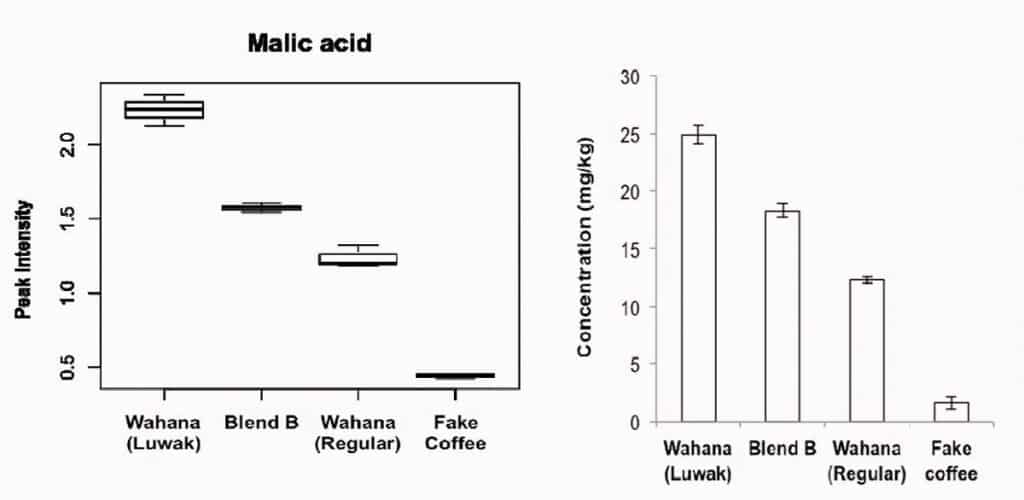
Kopi Luwak Benefit 2: Citric Acid
Just like malic acid, citric acid also plays a major role in the Krebs cycle, which means boosted levels of citric acid give you more energy. When citric acid is metabolized by the body, it actually increases the body’s pH levels, making it more alkaline. That’s exactly why many people on an alkaline diet—adamantly supported by people like Tony Robbins—add lemon to their water in the mornings; contrary to what you may think, adding citric acid to your diet makes your body more alkaline, and thus stronger and more capable overall. Kopi luwak has much more citric acid than other types of coffee.
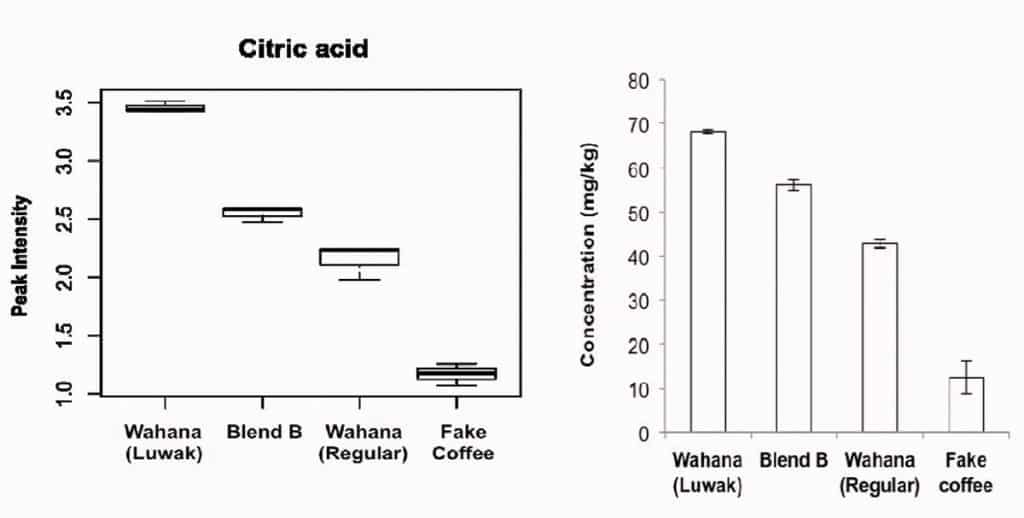
Kopi Luwak Benefit 3: Inositol
Inositol is essential in building cell membranes and acts as a “secondary messenger” in your nervous system, which means it increases the impact of neurotransmitters in your brain. Many women are familiar with inositol because of all the research that’s been done into its effects on treating polycystic ovarian syndrome (PCOS), which affects between 5-20% of women and is the most common cause of anovulatory infertility in industrialized nations. Inositol is not only capable of restoring spontaneous ovulation and improving fertility in women with PCOS, but it’s also been shown to combat depression, anxiety and obsessive compulsive disorder, too. Kopi luwak has much more inositol than other types of coffee, meaning you get a much bigger boost of these benefits when you drink kopi luwak than you do with other coffees.
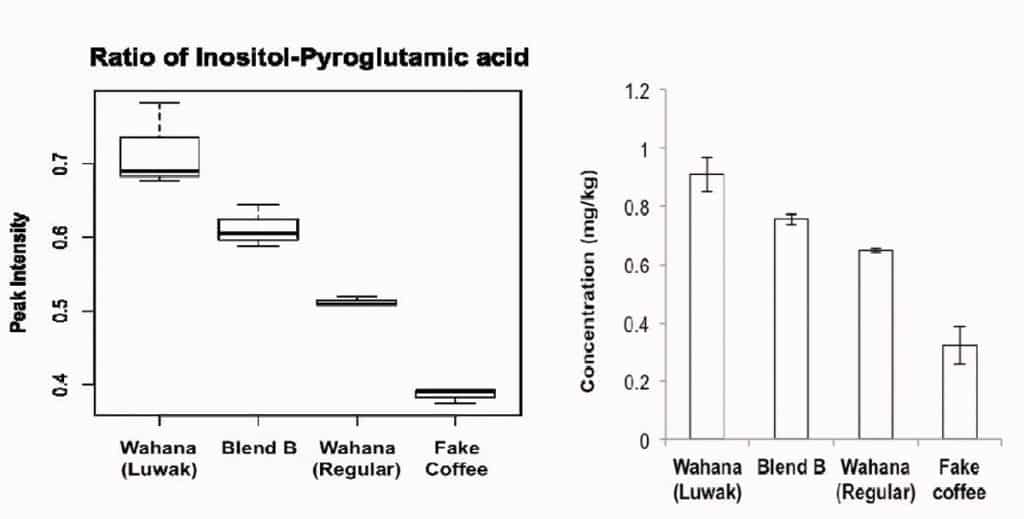 This is only the beginning of the health benefits of kopi luwak, though once you dive into the research literature, it’s clear that kopi luwak is one of the healthiest coffees in the world.
This is only the beginning of the health benefits of kopi luwak, though once you dive into the research literature, it’s clear that kopi luwak is one of the healthiest coffees in the world.
Here’s Where To Get Kopi Luwak In New York City
We’ve searched the city from top to bottom, asking the experts and popping into coffee shops to hunt down potential leads. However, we’ve only been able to find 2 places that currently serve kopi luwak in New York. Perhaps this isn’t surprising, given that kopi luwak often sells in cafes for $30/cup or more.
Note: Porto Rico on Bleecker Street used to serve kopi luwak several years ago, but they no longer do.
Place #1: Kopi Kopi
Kopi Kopi is on West 3rd Street, just around the corner from Porto Rico in Greenwich Village. It’s an Indonesian café serving breakfast dishes, Indonesian staples like nasi goreng, and kopi luwak. Since not many people order kopi luwak here, they may not have it available when you stop in. If you’re going there just for the kopi luwak, it’s best to give them a call (212 777 7285) before you show up just to make sure they have it in stock.
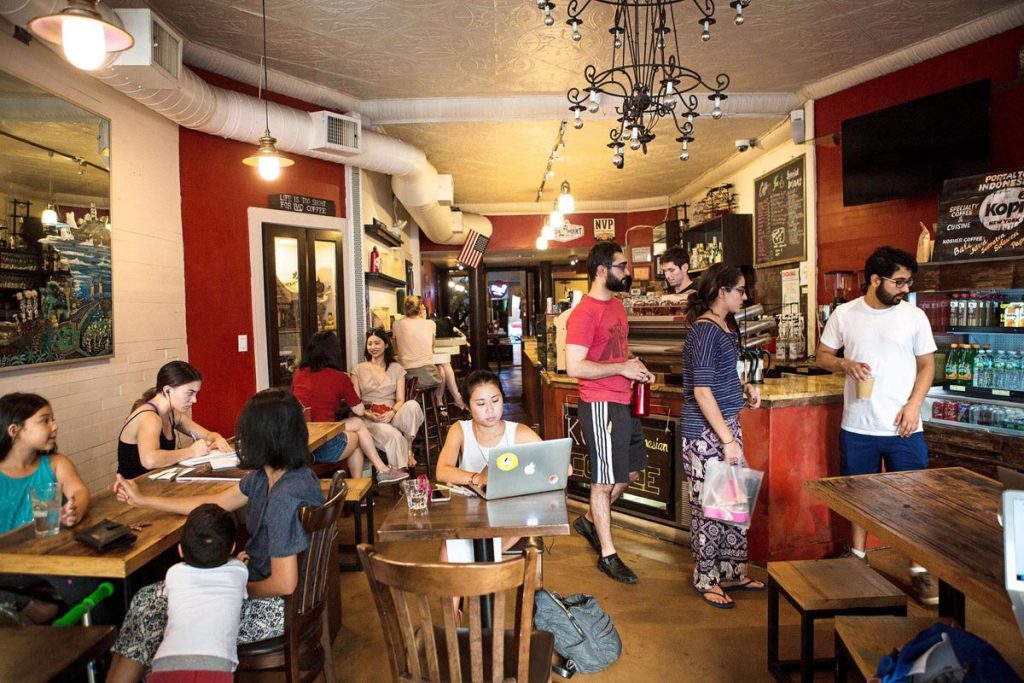
Kopi Kopi is the only cafe in all of New York City currently serving kopi luwak.
Place #2: Pure Kopi Luwak
Believe it or not, Kopi Kopi is the only café in all of New York or Brooklyn serving kopi luwak, which means your only other option is to buy it online.
Pure Kopi Luwak is packed full of antioxidants and other goodies that put your brain and body at their best. You’ll notice a difference in your day from the very first cup, so get your limited edition set of our current batch today.
Prefer to look in other cities instead? Here's where you can find kopi luwak in New York City, Los Angeles, San Francisco, San Diego, Chicago, Seattle, Toronto, Vancouver, Singapore, Hong Kong, and Dubai, UAE.
FAQs
How does kopi luwak taste?
Since every kopi luwak bean has been digested by a civet before it reaches your cup, it has a highly unique flavor. As the civet digests the coffee beans, proteins are broken down and leached out of the bean. Since proteins are what make coffee bitter, the low-protein kopi luwak is probably the least bitter of any coffee you’ll try.
On top of that, every coffee connoisseurs knows that wet processed or fermented beans taste better than dry-processed beans. Numerous studies have shown that in wet processing arrangements, lactic acid bacteria are the preferred method of fermentation; lactic acid is the major colonizing bacteria in the civet’s digestive system. It’s a match made in heaven.
How much caffeine is in kopi luwak?
For the same reason as why kopi luwak has such a unique flavor profile (see above), it also has about half the caffeine as a regular cup of arabica coffee and about one-quarter of the caffeine in a cup of robusta coffee.
Is kopi luwak safe to drink?
Yes, kopi luwak is completely safe to drink. The people of Southeast Asia have been drinking kopi luwak for hundreds of years without having a problem. Our beans are washed liberally multiple times after being collected, so they’re extremely clean and safe. The roasting process adds an additional layer of care, as the high heat of the roast eliminates any bacteria that might’ve made it through the washing process.
How should I store my kopi luwak?
You should store kopi luwak the same way you’d store any coffee: in a cool, dry place away from direct sunlight, making any pantry or kitchen drawer a good place. Our kopi luwak comes in an airtight pack, specially designed to keep your beans fresh for as long as possible.

